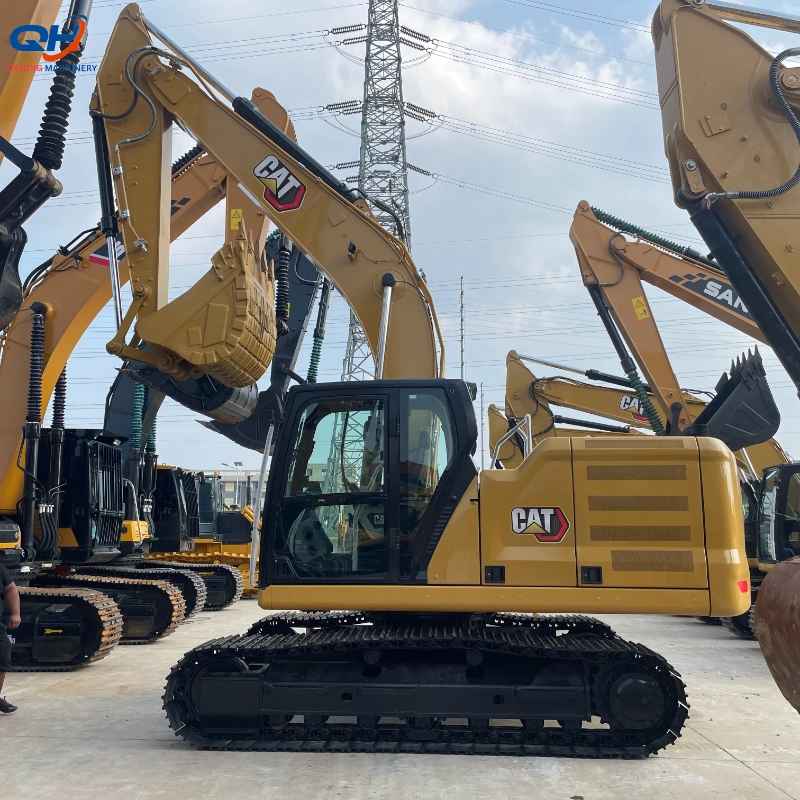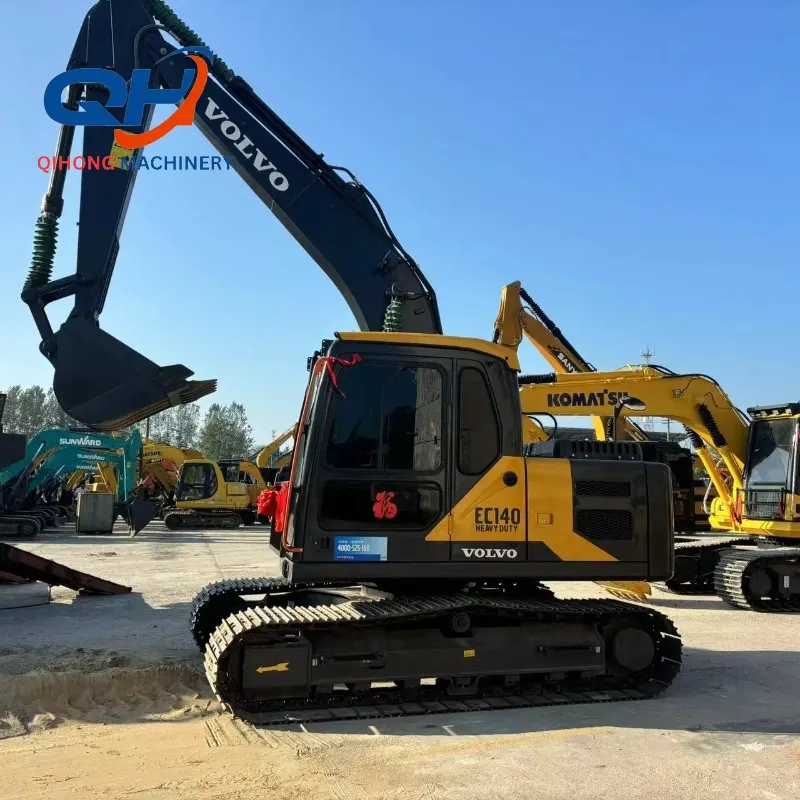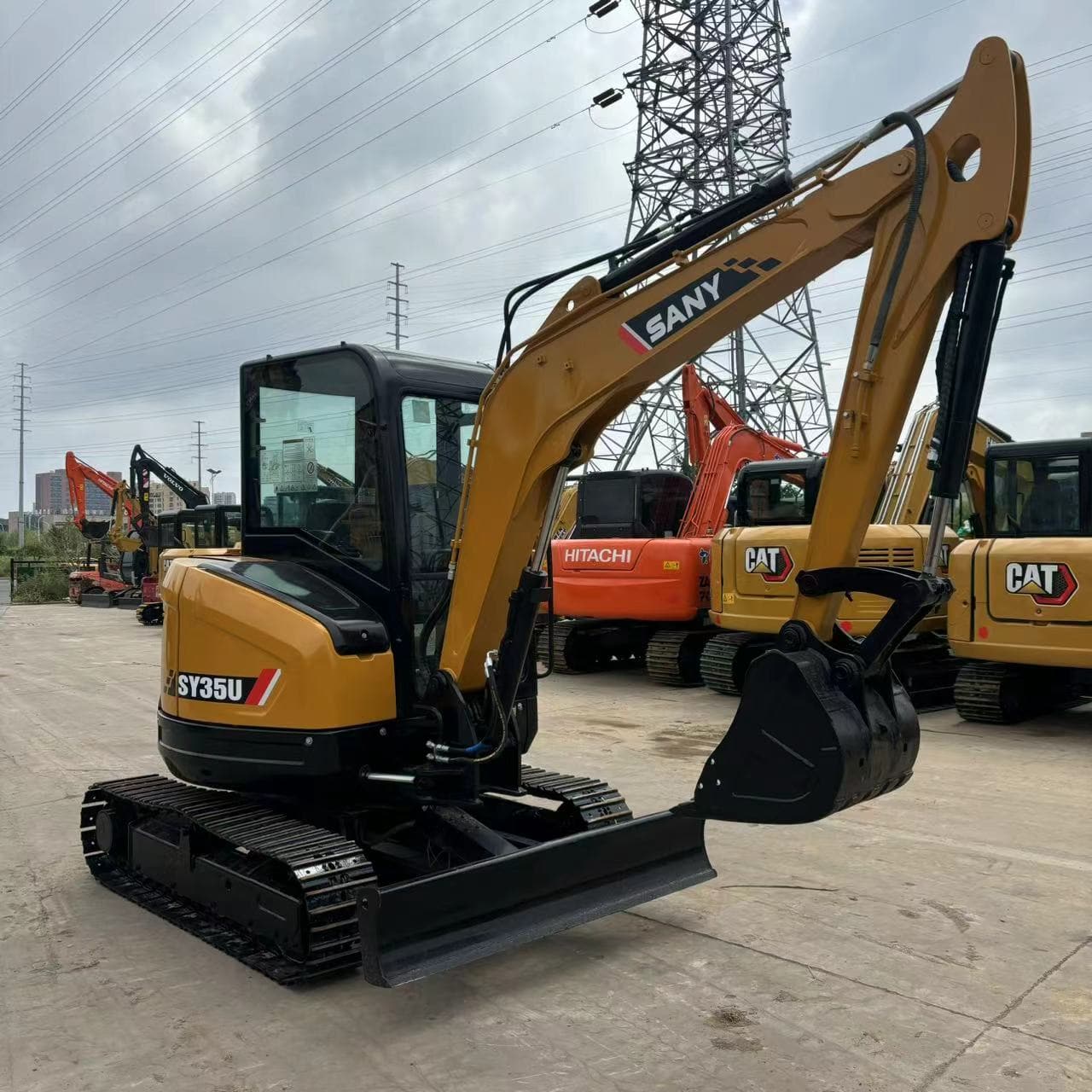How to Extend the Service Life of a Used Excavator: Key Maintenance Tips
Release time: 2024-12-10
Excavators are essential pieces of equipment in construction, mining, and heavy-duty industries. These powerful machines are designed to handle demanding tasks such as digging, lifting, and material handling. However, like all machinery, excavators require proper maintenance to operate efficiently and last longer. If you’ve recently purchased a used excavator or want to extend the life of your existing machine, understanding and applying the best excavator maintenance practices is crucial. In this article, we’ll discuss key excavator maintenance tips that can help significantly prolong its service life.

1. Regular Engine Maintenance for Your Excavator
The engine is the heart of the excavator, so keeping it in optimal condition is essential to the machine’s performance and longevity. Here are essential engine maintenance tips:
- Oil Changes: Regular oil changes are critical for lubricating the engine components and preventing overheating. Be sure to change the oil at the manufacturer’s recommended intervals using high-quality oil.
- Air and Fuel Filters: Clogged air and fuel filters can decrease engine efficiency and fuel consumption. Replace these filters regularly to ensure optimal engine performance.
- Coolant System: The coolant system is responsible for regulating the engine temperature. Ensure the coolant levels are adequate, and check the radiator and hoses for leaks.
2. Maintain Your Excavator’s Hydraulic System
Excavators rely on hydraulic systems to power their various components, including the boom, arm, and bucket. Here’s how to keep your hydraulic system in good shape:
- Hydraulic Fluid: Regularly check hydraulic fluid levels to prevent overheating and system failure. Change the fluid and filters as per the manufacturer’s guidelines to ensure smooth operation.
- Hydraulic Hoses and Fittings: Inspect hoses for cracks and leaks. Worn-out hoses can lead to hydraulic fluid loss and system failure.
- Hydraulic Pump: The hydraulic pump generates pressure in the system. Check for signs of wear or abnormal operation and replace parts as needed.
3. Undercarriage and Track Maintenance
The undercarriage is one of the most critical components of an second hand excavator and is constantly exposed to tough conditions. Proper maintenance will prevent unnecessary wear and tear.
- Track Tension: Ensure the track tension is correct. Tracks that are too loose can cause excessive wear on sprockets, while tight tracks put undue stress on the system.
- Track Pads and Shoes: Inspect track pads for damage and excessive wear. Replacing worn-out pads early can prevent issues with stability and safety.
- Cleaning the Undercarriage: Clean the undercarriage regularly to remove dirt, mud, and debris. This prevents excess friction, which could lead to quicker wear on your tracks.
4. Proper Lubrication of Moving Parts
Lubrication is key to minimizing friction and avoiding premature wear on your excavator’s moving parts.
- Grease Points: Grease all moving parts regularly to ensure that joints, bushings, and pivots move smoothly and without resistance. Proper lubrication also helps prevent rust and corrosion.
- Pivot Points: Check the boom, arm, and other pivot points for wear and apply grease to reduce friction and improve performance.
5. Electrical System Maintenance
The electrical system powers several critical functions of your excavator, including lights, sensors, and control systems. Here’s how to keep it running efficiently:
- Battery Maintenance: Check the battery regularly for corrosion and ensure the terminals are clean. A weak or dead battery can cause your excavator to fail when you need it most.
- Wiring and Connections: Examine the wiring for frays or signs of wear. Faulty wiring can lead to electrical failures and costly repairs.
- Fuses and Relays: Inspect fuses and relays for damage. A blown fuse can cause problems with critical systems, so it’s important to replace any faulty fuses immediately.
6. Daily Inspections and Operational Checks
Routine inspections before and after each use can help you identify potential issues early and prevent major repairs.
- Visual Inspections: Look over the entire machine for visible signs of leaks, cracks, or damage, especially in critical areas like the hydraulic system and engine.
- Test the Controls: Test all operational controls, including steering, braking, and hydraulic functions. This will ensure everything is working smoothly before use.
- Fluid Levels: Check the oil, hydraulic fluid, fuel, and coolant levels before starting the excavator to ensure that everything is at the correct level.
7. Proper Storage to Protect Your Excavator
When your excavator isn’t in use, proper storage is vital to protect it from environmental wear and tear.
- Indoor Storage: If possible, store your excavator in a dry, sheltered location to prevent rust and corrosion from rain or snow.
- Cover the Excavator: Use a weather-resistant cover to protect your machine when storing it outside. This will keep moisture and dirt out of sensitive components.
8. Professional Servicing and Timely Repairs
Although daily maintenance is crucial, having professional servicing done periodically can prevent larger issues from developing.
- Scheduled Maintenance: Follow the manufacturer’s recommended maintenance schedule to ensure that your excavator is getting the necessary attention.
- Repairs: If you notice any malfunction or unusual performance, address it immediately. Timely repairs can save you from more expensive and extensive fixes down the road.
Extend Your Excavator’s Life with Proper Maintenance
By following these excavator maintenance tips, you can significantly extend the service life of your used excavator. Regular maintenance of the engine, hydraulic system, undercarriage, electrical components, and more will ensure the machine runs smoothly and reliably for years to come. Remember, a well-maintained excavator is more efficient and more cost-effective and retains a higher resale value.
Taking the time for routine maintenance will help your equipment work at its best, prevent unexpected downtime, and provide long-term savings. A little care today can save you from expensive repairs tomorrow.
Want to learn more about excavator care? Contact us for expert maintenance advice!


